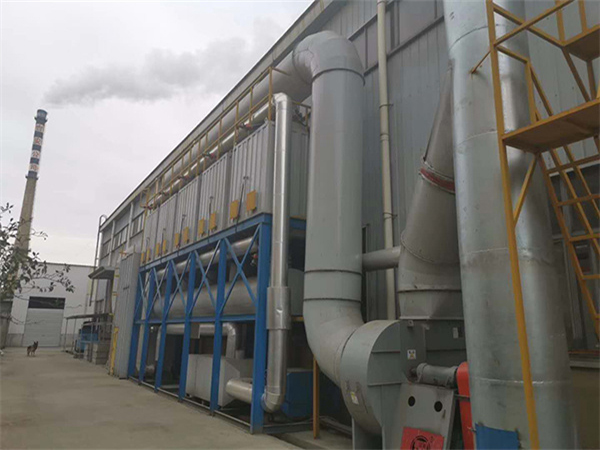产品展示
News
Contact
Contacts:Mr. Gao
Tel:+86-15006627337
E-mail:sales@lzgfrp.com
Add:Anqiu Development Zone, Weifang City,Shandong,China

-
category:
Application
-
introduce:
Waste gas purification in chemical workshops
TEL:+86-15006627337
Details
With the development of industry, the scale of the chemical industry is getting larger and larger, but it also brings more waste gas emission problems. These exhaust gases not only cause pollution to the environment, but also pose a threat to human health. Therefore, it is very necessary to treat the waste gas from chemical plants. This article will introduce several commonly used chemical plant waste gas treatment processes to help everyone better understand how to treat chemical plant waste gas.
1. Alkali cleaning process
The alkali washing process is the most common waste gas treatment process in chemical plants. It mainly uses alkaline substances to neutralize the acidic substances in the exhaust gas, thereby removing the acidic substances and some organic matter in the exhaust gas. The advantages of the alkali cleaning process are simple operation, low cost and strong adaptability. However, the alkali cleaning process also has some shortcomings, such as the unsatisfactory removal effect of organic matter in the exhaust gas. At the same time, alkaline substances have a certain corrosive effect on equipment and pipelines, and require regular maintenance and replacement.
2. Pickling process
The pickling process is a more thorough chemical plant waste gas treatment process. It mainly uses acidic substances to react with organic matter and acidic substances in exhaust gas, thereby removing acidic substances and organic matter in exhaust gas. The advantage of the pickling process is that the removal effect is more thorough, it can effectively remove volatile organic compounds and sulfides and other substances in the exhaust gas, and at the same time, it has less corrosion effect on equipment and pipelines. However, the pickling process also has some disadvantages, such as higher cost, the need to use more acidic substances, and the removal effect of organic matter in the exhaust gas is not ideal.


